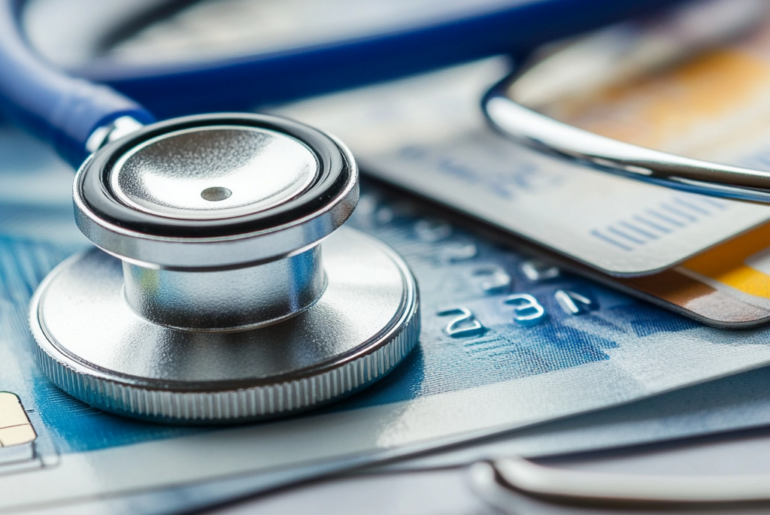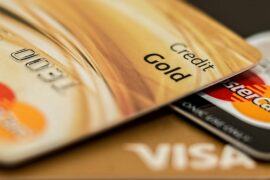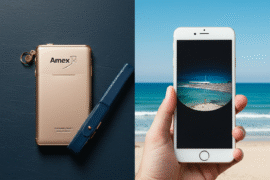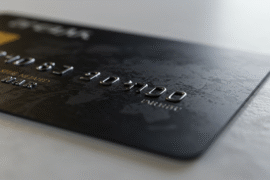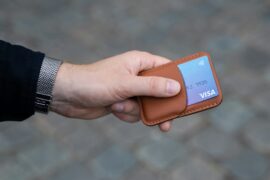This article may contain references to products or services from one or more of our advertisers or partners. We may receive compensation when you click on links to those products or services. Nonetheless, our opinions are our own.
The information presented in this article is accurate to the best of our knowledge at the time of publication. However, information is subject to change, and no guarantees are made about the continued accuracy or completeness of this content after its publication date.
Managing medical expenses can be daunting, especially when unexpected bills arise. A well-chosen credit card can help you cover these costs and provide valuable rewards and benefits tailored to healthcare needs. Whether you’re facing routine visits or an unforeseen emergency, options that cater specifically to medical payments are available.
We’ve curated a selection of the best credit cards for managing medical expenses—ranging from 5 to 12 top choices. You’ll discover essential features like low interest rates, cashback offers on healthcare spending, and additional perks such as flexible payment plans or health-related discounts. You’ll better understand which card could best support your financial goals while prioritizing your health.
- Chase Freedom Unlimited
- Blue Cash Everyday Card from American Express
- Capital One QuicksilverOne Cash Rewards Credit Card
- Discover it Cashback Match
- Citi Double Cash Card
- Health Savings Account (HSA) Debit Cards
- Best Credit Cards for Medical Expenses—At a Glance
- Final Thoughts
- Frequently Asked Questions (FAQ)
- What are the typical cash back rewards offered by general-purpose credit cards that users consider for medical expenses?
- Are there any specific credit cards mentioned that offer higher rewards or benefits specifically for healthcare expenses?
- Why isn’t there a wider availability of credit cards with high rewards specifically for medical expenses?
- What other financial tools or strategies are discussed for managing and potentially saving on medical costs besides traditional credit cards?
- What are some of the higher cash back options’ limitations or drawbacks?
- Is the acceptance of different payment methods, like mobile pay, a significant factor when considering rewards for medical expenses?
- What is the consensus among the users regarding the “best” approach to earning rewards on medical expenses?
- Are any warnings or alternative perspectives offered regarding specific financial products mentioned for medical expenses?
- Recommended Reads
Chase Freedom Unlimited
Offering 1.5% cash back on every purchase, this card is ideal for covering unexpected medical expenses while allowing you to earn rewards over time.
The Chase Freedom Unlimited is a versatile credit card that caters perfectly to individuals managing unexpected medical expenses. With a straightforward cash-back structure of 1.5% on every purchase, you can earn rewards without the complexity of rotating categories or spending limits. This means whether you’re paying for a doctor’s visit, pharmacy supplies, or emergency care, your expenditures will help cover essential costs and contribute to earning cash back over time.
Moreover, this card comes with no annual fee and offers additional benefits like:
- No foreign transaction fees make it suitable for international travel health emergencies.
- Initial bonus points after meeting the minimum spending requirement within the first few months.
- Purchase protection and extended warranty coverage for eligible items.
This combination of features makes Chase Freedom Unlimited a practical option for those who want their everyday purchases to help cushion against unanticipated healthcare bills while accumulating rewards.
Blue Cash Everyday Card from American Express
With 3% cash back on grocery purchases, this card is particularly beneficial when buying over-the-counter medications or health food products.
The Blue Cash Everyday Card from American Express offers an impressive cash-back opportunity that can considerably offset your grocery costs. This card includes valued purchases such as over-the-counter medications and health food products. With a generous 3% cash back on eligible grocery store purchases, this card becomes especially useful for individuals or families needing to stock up on essential health items.
When considering the benefits of this card, keep in mind:
- There is no annual fee, making it accessible for those who want to maximize their rewards without incurring additional costs.
- Flexible redemption options allow you to use your cash back as statement credits or shopping gift cards.
- It adds value during everyday expenses, ensuring consistent use at grocery stores, which leads to considerable savings over time.
Capital One QuicksilverOne Cash Rewards Credit Card
This option features unlimited 1.5% cashback and is perfect for those looking to build credit while managing healthcare costs.
The Capital One QuicksilverOne Cash Rewards Credit Card is an excellent choice for individuals focused on managing healthcare costs while simultaneously working to build their credit profiles. With its straightforward structure, this card offers unlimited 1.5% cashback on all purchases, making it a versatile tool for those looking to offset medical expenses with rewards.
- Credit Building Opportunity: This card is designed for those with average credit scores. It helps users improve their credit ratings as they make timely payments.
- Flexible Cashback System: You can use the earned rewards towards future medical expenses or everyday purchases—it’s entirely up to you!
This card balances earning potential and financial flexibility, making it suitable for healthcare-related spending and other everyday transactions that contribute positively to overall budget management.
Discover it Cashback Match
This card offers 5% cashback in rotating categories each quarter, potentially including health-focused retailers, plus a unique feature of matching your first-year rewards.
If you’re looking to maximize your rewards on medical expenses, the Discover it Cashback Match could be an exceptional choice. This card stands out with its 5% cashback in rotating categories each quarter, allowing cardholders to earn significantly more during specific times of the year when they might spend more on health-related purchases. These categories can include a variety of health-focused retailers, enabling users to reap the benefits while taking care of their well-being.
One of the most attractive features is that Discover matches all the cash back you’ve earned at the end of your first year. If you’ve diligently used your card for medical bills and other expenses throughout that period, you’ll enjoy double rewards once your anniversary hits. Combined with flexible payment options and no annual fee, this card truly offers a uniquely rewarding way to manage healthcare costs effectively.
Voted "Best Overall Budgeting App" by Forbes and WSJ
Monarch Money helps you budget, track spending, set goals, and plan your financial future—all in one app.
Get 50% OFF your first year with code MONARCHVIP
Citi Double Cash Card
Known for its straightforward structure, this card provides an impressive 2% cash back on all purchases (1% when you buy and another 1% when you pay), making it versatile for medical spending.
The Citi Double Cash Card stands out among credit cards, particularly for individuals looking to optimize their medical expenses. With its simple yet effective cash-back structure, this card allows you to earn 2% cash back on every purchase—1% when you make a purchase and an additional 1% when you pay your bill. This dual-earning potential is especially beneficial for those who frequently incur medical costs.
Here are some reasons why this card may be ideal for managing your healthcare spending:
- There is no annual fee, so you can enjoy the benefits without worrying about extra costs eating into your rewards.
- Universal acceptance at pharmacies and healthcare providers.
- Cash-back earnings on prescriptions, doctor visits, dental work, and other health-related transactions.
Health Savings Account (HSA) Debit Cards
While not a credit card, using an HSA debit card for qualified health expenses with pre-tax dollars is a savvy financial tool directly tied to medical costs.
Health Savings Account (HSA) debit cards offer a unique opportunity to manage medical expenses effectively while maximizing your financial resources. These debit cards allow you to access funds already set aside in your HSA, which are contributed pre-tax. Using this card for qualified health expenses can save a notable amount on taxes and keep your overall healthcare costs manageable.
- Tax Efficiency: Funds withdrawn via the HSA debit card for eligible medical expenses are tax-free, allowing you to stretch your budget further.
- Easy Access: Using an HSA debit card simplifies transactions at the point of service, enabling immediate payment without waiting for reimbursements or processing claims later.
- Control Over Health Spending: With an HSA-linked debit card, you can easily track health-related purchases and control how much you spend on healthcare costs throughout the year.
Best Credit Cards for Medical Expenses—At a Glance
| Credit Card | Best For | APR & Fees | Key Features |
|---|---|---|---|
| CareCredit Credit Card | Medical-specific financing | 0% interest for 6-24 months (if paid in full) | Accepted by many healthcare providers |
| Chase Freedom Unlimited® | Everyday medical purchases | 0% intro APR for 15 months, then 20.49%–29.24% | 1.5% cash back on all purchases |
| Citi® Simplicity Card | Interest-free medical debt | 0% intro APR for 21 months | No late fees, no annual fee |
| Blue Cash Everyday® from American Express | Medical-related shopping | 3% cash back on groceries (for OTC meds & health products) | No annual fee |
| Capital One QuicksilverOne | Credit-building with rewards | 1.5% cash back, annual fee: $39 | Designed for fair credit |
| Citi® Double Cash Card | Flat-rate cashback | 2% cash back (1% on purchases, 1% on payments) | No annual fee |
| HSA/FSA Debit Cards | Pre-tax medical expenses | No credit check | Tax-free spending for eligible healthcare costs |
Final Thoughts
Finding the best credit card for medical expenses depends on your financial needs. If you need financing for medical bills, a 0% APR card like the Citi Simplicity or CareCredit may be best. Consider the Chase Freedom Unlimited or Citi Double Cash Card if you want cashback on healthcare costs.
Before applying, always check the terms, interest rates, and eligibility requirements to ensure the card is appropriate for your situation.
Frequently Asked Questions (FAQ)
What are the typical cash back rewards offered by general-purpose credit cards that users consider for medical expenses?
Many users in the discussion rely on general flat-rate cash back cards, with 2% being a commonly cited benchmark. Some options mentioned for slightly higher than 2% cash back include the Bank of America Unlimited Cash Rewards (requiring a significant investment with Merrill Edge for 2.625%), the Alliant Visa Signature (2.5% with specific checking account requirements and a monthly spending cap), and the Citi Double Cash (2.22% when paired with the Citi Rewards+ card). These are often seen as the best general options in the absence of dedicated high-reward medical expense cards.
Are there any specific credit cards mentioned that offer higher rewards or benefits specifically for healthcare expenses?
The Upgrade Triple Cash Rewards card is highlighted as offering 3% cash back on “healthcare purchases,” which explicitly includes hospital visits, dental work, prosthetics, hearing aids, doctor’s visits, and other categories. The Venmo Credit Card also has a “Health and Beauty” category that earns 3% cash back, although its applicability to broader medical expenses is not fully clarified in the discussion.
Why isn’t there a wider availability of credit cards with high rewards specifically for medical expenses?
The discussion doesn’t explicitly state why, but the prevailing sentiment suggests that the market for such specialized cards is limited. Users desire such cards, particularly for significant expenses like vet bills, indicating an unmet need. The fact that most recommendations default to general cash back cards implies a lack of compelling, dedicated options.
What other financial tools or strategies are discussed for managing and potentially saving on medical costs besides traditional credit cards?
A Health Savings Account (HSA) is mentioned as a potentially superior way to save on healthcare costs, offering tax advantages. The strategy of paying with a credit card for rewards and reimbursing oneself from the HSA is also suggested, potentially maximizing rewards and tax benefits (though the original poster preferred to keep their HSA invested). The Kroger card offering 5% back on mobile payments (with a yearly cap) is also mentioned as a niche option if medical providers accept Apple Pay.
What are some of the higher cash back options’ limitations or drawbacks?
Several limitations are noted. The Bank of America Unlimited Cash Rewards at 2.625% requires a substantial $100,000 investment with Merrill Edge, making it inaccessible to most. The Alliant Visa Signature’s 2.5% cash back comes with conditions like maintaining an Alliant checking account with a minimum balance, enrolling in eStatements, making monthly electronic deposits, and a $10,000 monthly spending cap. The Kroger card’s 5% back is limited to mobile payments and has a $3,000 annual cap.
Is the acceptance of different payment methods, like mobile pay, a significant factor when considering rewards for medical expenses?
Yes, accepting mobile payment options like Apple Pay is highlighted as crucial. The Kroger card’s 5% cash back becomes relevant only if medical providers accept such payments. Similarly, the US Bank Altitude Reserve’s 4.5% back on mobile pay redeemed for travel is contingent on this acceptance. However, some users note that many medical providers, particularly older establishments, may still rely on older payment methods like paper billing and lack tap-to-pay or chip readers, limiting the usefulness of mobile payment-focused rewards.
What is the consensus among the users regarding the “best” approach to earning rewards on medical expenses?
The consensus is that a sound flat-rate cash back card (around 2%) is often the most straightforward and reliable option for earning rewards on medical expenses due to the lack of specialized high-reward cards in this category. While some specific cards offer slightly higher rewards, they often have conditions or limitations. Utilizing an HSA for its tax advantages, potentially in conjunction with credit card rewards, is also a smart financial strategy for those who qualify.
Are any warnings or alternative perspectives offered regarding specific financial products mentioned for medical expenses?
While the Upgrade Triple Cash Rewards card offers 3% back on healthcare, one user notes that it is associated with a “line of credit” that they consider a “predatory lender.” This highlights the importance of understanding the terms and reputation of financial products beyond just the rewards offered.

Reviewed and edited by Albert Fang.
See a typo or want to suggest an edit/revision to the content? Use the contact us form to provide feedback.
At FangWallet, we value editorial integrity and open collaboration in curating quality content for readers to enjoy. Much appreciated for the assist.
Did you like our article and find it insightful? We encourage sharing the article link with family and friends to benefit as well - better yet, sharing on social media. Thank you for the support! 🍉
Article Title: Best Credit Card for Medical Expenses
https://fangwallet.com/2025/03/19/best-credit-card-for-medical-expenses/The FangWallet Promise
FangWallet is an editorially independent resource - founded on breaking down challenging financial concepts for anyone to understand since 2014. While we adhere to editorial integrity, note that this post may contain references to products from our partners.
The FangWallet promise is always to have your best interest in mind and be transparent and honest about the financial picture.
Become an Insider

Subscribe to get a free daily budget planner printable to help get your money on track!
Make passive money the right way. No spam.
Editorial Disclaimer: The editorial content on this page is not provided by any of the companies mentioned. The opinions expressed here are the author's alone.
The content of this website is for informational purposes only and does not represent investment advice, or an offer or solicitation to buy or sell any security, investment, or product. Investors are encouraged to do their own due diligence, and, if necessary, consult professional advising before making any investment decisions. Investing involves a high degree of risk, and financial losses may occur including the potential loss of principal.
Source Citation References:
+ Inspo
There are no additional citations or references to note for this article at this time.
